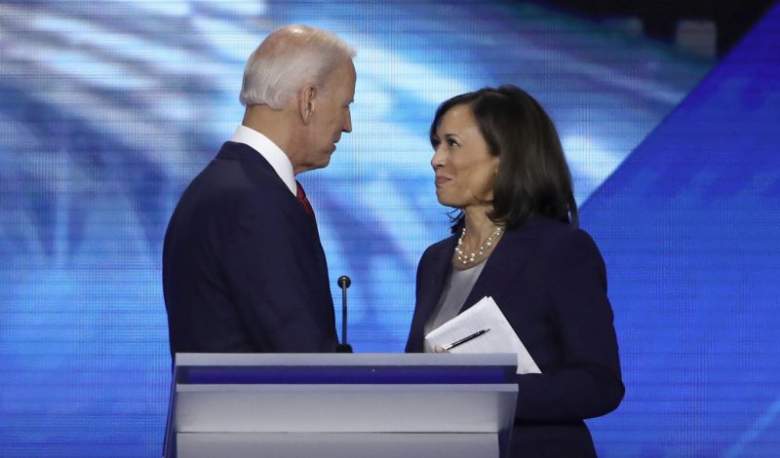
Kamala Harris has been selected as Joe Biden’s running mate in the 2020 presidential election — and now, it’s likely that many of her proposals and stances will get more attention, including her proposal for the federal government to provide monthly stimulus payments to individuals and families until the coronavirus pandemic is over.
The Monthly Economic Crisis Support Act stimulus plan proposal was introduced in May by Senators Kamala Harris, Bernie Sanders and Ed Markey. According to the act’s one-pager, the proposal would send $2,000 per month to individuals and $4,000 to married couples who file jointly, along with an additional $2,000 per child, up to three children. Any individual earning less than $120,000 would be eligible; the payments would be reduced for income more than $100,000 for individuals or $200,000 for married couples. This plan would send a payment to every U.S. citizen, even those without a Social Security number and those who haven’t filed a recent tax return. Debt collectors would not be allowed to seize this money.
This plan means that a married couple with a combined income of $200,000 or less with three or more children would receive $10,000 a month.
Harris’ stimulus plan is notable for another reason: it offers retroactive payments back to March, when the pandemic began. That means a family of five could receive a first payment of more than $50,000 if the plan passes. An individual could receive more than $12,000 in their first payment.
Here’s what you need to know:
What Harris Has Said About the Need for Monthly Stimulus Payments
Since being tapped as Biden’s vice-presidential pick, Harris has not commented on her stimulus plan. However, she spoke frequently about it, both in interviews and on social media, in the days leading up to her nomination.
In a webcast interview hosted by The Appeal, Harris addressed fears about how much these monthly payments would cost the U.S. government. She said, per CNBC, “One of the things, first of all, that I find tiring is those who want to suggest, ‘Oh, this is a lot of money,’ when they’re the same people who passed a tax bill benefiting the top 1% and the biggest corporations of America and are going to cause us to face a $1 trillion deficit as a result of it.”
In another interview in July with MSNBC, Harris said:
Through the course of this pandemic and crisis, we need to give people $2,000 a month as recurrent payments—people below a certain income level—to help them and sustain them through these months of crisis so at the end of it, they can get back up on their feet instead of falling deep deep deep into the crevices of this crisis. And, it does not make any sense, to your point, when we have Republicans in Congress who are standing in the way of supporting working people who have recently lost their jobs—[and] have every intention of working—when we can get through this crisis and [they] just need help from their government.
What Has Biden Said About Stimulus Payments?
Biden has not commented on Harris’ outspoken desire to provide monthly payments to the American people. Jeff Stein of The Washington Post wrote, “Biden’s campaign has largely deferred to House Speaker Nancy Pelosi (D-Calif.) and Senate Minority Leader Charles E. Schumer (D-N.Y.) on the specifics of coronavirus stimulus legislation.”
Biden’s economic plan does acknowledge the possibility of stimulus payments, saying a proposal “could include cash payments to working families,” but that’s as specific as the former vice president has gotten so far.
READ NEXT: Retroactive Payments of $12,000 Could Happen With Kamala Harris’ Plan